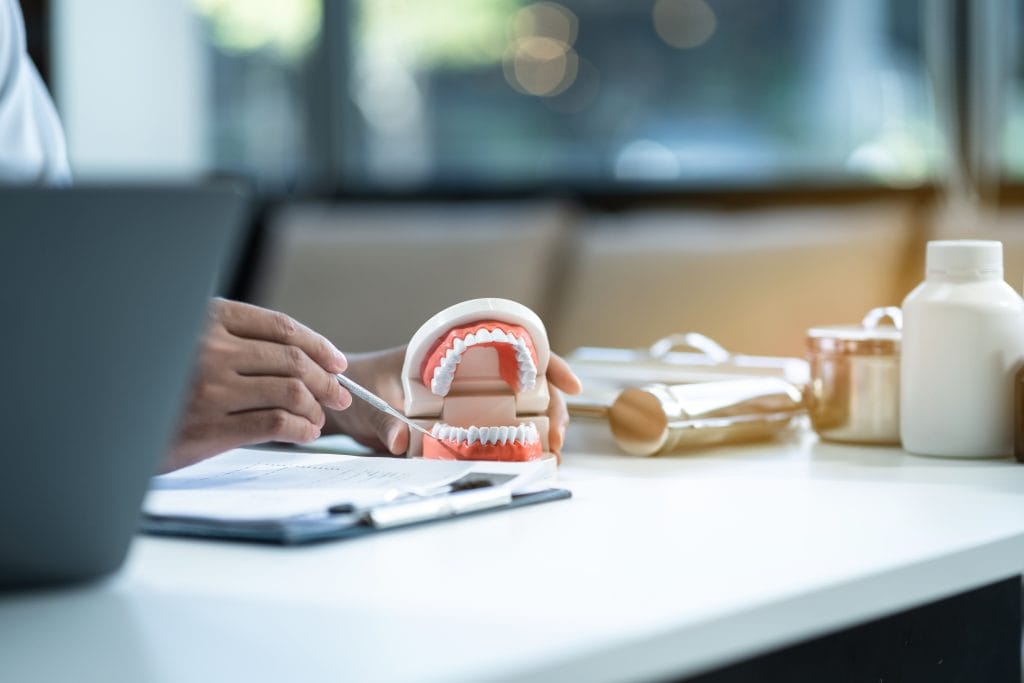Last updated on September 26th, 2024 at 04:11 pm
 For this week’s blog post, I’d like to run my answer to a dental question I received as a part of my regular “Ask Sabri” column in MGE publications. It’s a question that I receive from a lot of different dentists, so you might find the answer useful.
For this week’s blog post, I’d like to run my answer to a dental question I received as a part of my regular “Ask Sabri” column in MGE publications. It’s a question that I receive from a lot of different dentists, so you might find the answer useful.
Q: Should I add hours, e.g. extra hours in the evening or Saturdays? Patients ask about it from time to time, but I’m not sure if it’s a good idea.
Good question and I get this one often. Now, my answer is a little long…but there’s a reason. Done incorrectly, adding hours can become anywhere from a minor nuisance to an expensive disaster. So, I figured I’d run you through the process I use when answering this question for a client.
(Related: Who’s Running This Place?)
To start, ask yourself this question:
What problem am I trying to solve by adding hours?
Why this question? Well, for many – and not just dentists – the thought process behind adding hours runs like this:
“If I add hours, I’ll add production. The schedule will just fill.” (Sort of the “Build it and they will come” mentality. I have seen this not work out more times than I can count.
There’s also:
“Everyone says they want a Saturday appointment – so if I just opened Saturday it would be packed!” which of course leaves you wondering when you have a 50% no-show rate on the second Saturday that you’re open…
 So, this question (“What problem am I trying to solve by opening ______ day or adding hours?”) is CRITICAL when making a decision of this kind. To explain, let’s have a look at the impact adding hours has on your team and bottom line:
So, this question (“What problem am I trying to solve by opening ______ day or adding hours?”) is CRITICAL when making a decision of this kind. To explain, let’s have a look at the impact adding hours has on your team and bottom line:
Labor Cost
Chances are that, as things are now, your staff works anywhere from 35-40 hours a week. So, let’s say you have two people up front and decide to open add two hours. You’re currently open from 8 AM to 5 PM and plan to extend the office hours to 7 PM on three to four nights a week. You’re faced with three choices:
(Related: How to Determine if Your Dental Practice is Underproducing)
1. Split shifts. One comes in to open at 8 AM and goes til 5 PM and the other person at the front starts at 10 to run til 7 PM. Or,
2. Pay overtime for both to work the entire schedule, or
3. Add a part-time staff member to help with coverage.
With “a” you could end up with a team cohesiveness issue (more on this below). With “b” and “c” you have increased labor cost. If this all pans out to increased revenue, then it might be worth it. I’ll get into how to project this later in my answer.
Team Unity and Cohesiveness
 If your office is open excessively late, or 5 or more days a week, you may run into cohesiveness issues. While this can be handled, I wouldn’t subject myself to this unless it was absolutely necessary to add the hours or days (again will answer this part later).
If your office is open excessively late, or 5 or more days a week, you may run into cohesiveness issues. While this can be handled, I wouldn’t subject myself to this unless it was absolutely necessary to add the hours or days (again will answer this part later).
But let’s say we split the shift (answer “a” above). What happens? Well, we end up with each staff covering each other’s jobs for two hours a day. With an Organizing Board and division of responsibility, this can become a problem. Ideally, as you go, you start to have staff that specialize in a particular area: e.g. scheduling, insurance, etc. And while I agree it’s a good idea to have basic cross-training in place, splitting the day between two people means that someone is wearing their hat and the other person’s for 25% or more of the week! And keep in mind, if you have two people up front, there’s probably a good reason: Workload.
In the prior example, we have one person on the job up front from 8AM to 10AM, two people from 10 AM to 5 PM and one again from and from 5PM to 7PM. What if there’s a ton of new patient calls at 8:30 AM? That single front desk person is attempting to handle these while greeting and checking out the evening’s patients. Something’s going to give here.
And a key part of being on a “team” is you’re all there AT THE SAME TIME! Everybody working together becomes “synergistic” (sorry to pull out that 90’s buzzword, but it’s applicable here). It’s a case where those two people working together accomplish far more than they would working alone. That’s why we have a team in the first place. So, unless you absolutely HAVE to add hours or time and know-how to manage when you do, this can become a problem.
I’ll give you another extreme example. I had a client with a larger office and over 30 staff actually REDUCE their hours, they went from over 40 to under 40 clinical hours a week by closing Fridays, and they became MORE productive. The major change is that all of the staff were able to be there at the same time! Something to think about.
With this in mind, let’s look at the reasons most doctors look at adding hours and how this might play out. Chances are, if you’re looking at this, you’ll find yourself in one of these examples.
You want to add Saturdays (or evenings) because “a lot” of patients ask for it.
My first question here would be: How many is “a lot.” I’d actually count. Our COO, Jeff hates this term when it comes to company matters because it’s not specific; it isn’t quantified. Any time I hear a staff member here at MGE say something like this, Jeff’s next question is always: How many is “a lot”? Do you know? The staff member either has data to back up their assertion…or doesn’t. If they can’t…well, trust me, the next time they bring something up to Jeff they have numbers and facts to back up their argument!
And this is a good point. A “lot” might turn out to be three people in the last four months…out of 2500 patients! Why would you change your entire operating basis for three people? This isn’t a light decision, you’re not ordering lunch; this is a major corporate change – have numbers and facts to back it up!
This is a case of trying to solve a problem that isn’t actually a problem.
Now, on the other hand, let’s say that 50 or 100 people have asked. Well, you may have something there. Maybe you have an associate come in for a half day on Saturdays with one person up front and a hygienist. Or you open up a Saturday once a month. But, there’s also another factor: Are you busy during the current hours that you are open? If not, why would you add more time to the schedule? I cover this next.
You want to add hours to increase production; because you’re not busy enough during normal hours.
 Heard this one too and this is a disaster in the making. Why? You have the right problem – not productive enough – but the absolute WRONG solution.
Heard this one too and this is a disaster in the making. Why? You have the right problem – not productive enough – but the absolute WRONG solution.
I’ve seen the “logic” behind this and it doesn’t hold water. It goes something like this: “If I was open on Saturdays or in the evenings, people would show up…which they don’t want to do during my normal hours.”
If you’re not busy enough during your normal hours, you have a scheduling problem, not a patient access problem.
Open more hours and you’ll end up with increased labor costs, lower cohesiveness…and in many cases the same amount of production. And guess what? Every time I’ve seen this “solution” the doctor has a problem filling evenings and Saturdays as well.
What you’re actually doing when you do this is you’re handing over control of your schedule to your patients. Which may not sound bad, but it’s your business. It doesn’t work. There’s nothing wrong with being accommodating – I’d attempt to be to a fault. But there’s a point where this can become ridiculous.
And this brings us to the crux of the matter – if you’re even entertaining the idea of adding hours, you had better be efficiently jam-packed and super-productive during your current normal business hours! It should ENHANCE and ADD to production.
If someone came to me with this problem (low production), I would sort our why they weren’t busy or productive to begin with. It might be a scheduling problem, possibly a staff management problem or a case acceptance problem.
Which by the way (here’s my shameless MGE plug) we address these issues at the Art of Scheduling Productively Seminar, the MGE Effective Case Acceptance Seminar and the MGE Power Program.
Now, let’s say you are productive and busy. This brings us to the next scenario:
You want to add hours because your schedule is “maxed 0ut.”
 This, of course, is a more favorable scenario than the last two. And you may very well have to add hours in this case. But…before you move ahead, you might want to “tweak” a couple of things and check one last thing out:
This, of course, is a more favorable scenario than the last two. And you may very well have to add hours in this case. But…before you move ahead, you might want to “tweak” a couple of things and check one last thing out:
1. Is your schedule running at maximum efficiency? If it is, great! If not, tighten it up. Then hit your real “max,” at which point, more hours may be the solution.
2. Are you participating in a considerable number of low-reimbursement PPOs or HMOs? Without beating the drum for this too hard, let’s look at something: the reduction in fee associated with a PPO is, in essence, a marketing cost. You’re accepting a lower fee in exchange for these patients being directed to your practice via a book or website. You’re also counting on these patients wanting to pay a reduced fee at your office versus (in the case of a PPO) going elsewhere at full fee. Well, before you add another day to your schedule; maybe look at your degree of participation in these plans. While a 10% write-off is not all that bad (from a marketing cost perspective) 30% – 40% is pretty poor. You may wish to confront some of these contracts and either renegotiate for a higher fee or gradually filter them out of your practice. This coupled with an effective marketing plan will allow you to recapture the write-offs and potentially increase production by 20, 30 or 40% or more in the same amount of hours.
And while I don’t have a blanket answer for this as participation and patient counts change from office to office, I will say this: handle this process in a gradual (slow but sure) way that does not disrupt your practice. And, you had better know how to get more new patients if you’re going to do this – I’d recommend our New Patient Workshop (last plug…). You want to keep your patient base numbers steady and growing, so if you lose patients on any of these plans you want to be able to replace them with others.
Now, assuming you don’t problems with your schedule or managed care, there’s one last thing to look at: your facility. Specifically, can you add chairs or do you have unused chairs – i.e. maybe you’re maxed out but two chairs are not being used.
I would choose to expand my facility before I added hours. And I don’t necessarily mean leasing new space (that depends on your situation and the opportunity). I’m referring to a situation where you 4 chairs but are plumbed for 6. Of you have 6 chairs but are only using 4. Before adding hours I’d rather grow into my space until there was no choice but to either a) move or b) add hours!
Let’s play this forward:
Let’s say we have an office with 4 operatories, but plumbed for 6. The office is open four days a week. There are two full-time hygienists and one doctor. The doctor works out of two chairs and the hygienists out of one each. The schedule is BUSY. The idea of adding hours comes up…maybe add a day of hygiene and the equivalent of one doctor day.
Well, you might instead want to look at opening up one of more chairs in this case while keeping hours the same. Maybe an associate who starts part-time and develops into full time. With two additional chairs you could, in theory, add a full-time doctor and hygienist (the two docs might share the second room at some times…not ideal but could work). Production-wise you’re looking at a potential 40-70 thousand dollar bump here, so the chairs are paid for in a couple of months. All while working 4 days a week.
Now, let’s say THIS scenario “maxes” out. Well, now we add hours. Maybe Fridays and the doctor and associate split time. Also adds potentially 2-3 hygiene days a week by doing this. You could even add a Saturday and extended hours at that point. Now, there are a number of things you would do in this situation from a management perspective, but it can be done and run efficiently.
When you’ve hit the complete “Max” for this scenario which might be the office is open from 8 AM to 8 PM and Saturdays from 8 AM -5 PM as an example (with no one working more than 40 hours a week mind you) we’re looking at a host of new issues and questions. The good news: you’re probably producing three times what you were producing in 4 chairs by yourself 4 days a week! You have the time, space and finance to make decisions such as expanding your facility, buying a building, etc.
And look, this is also not to say that you wouldn’t buy a building unless your office was open 6 days a week! Those decisions, and whether they are a good or bad idea, depend on the opportunity!
And this is just one example. There are of course, any number of other scenarios and examples that I could come up with.
The bottom line is this: if you’re going to expand hours make sure you’re doing it for the right reasons!
It shouldn’t be a headache – it can when done correctly, be a rewarding experience.
And truth be told, I could come up with an infinite number of examples and still miss the situation you find yourself in. So, here’s what I am more than willing to do. If you’re faced with this problem: Should you add hours, chairs, move your office, etc. Email me at sabrib@mgeonline.com or call me at (800) 640-1140 and I’ll run through it with you. Knowing your particular situation, I’ll be best positioned to provide advice that could help steer you in the right direction.
Hope this helps!


It’s great that you are getting ideas from this article as well as from our argument made here.|
https://glamourdentalcare.in/
Like any other business. It’s not about you. It’s about your client.
Excellent article! Thank you Sabri. I will soon email you to rub my scenario since I’ve asked this question many times.